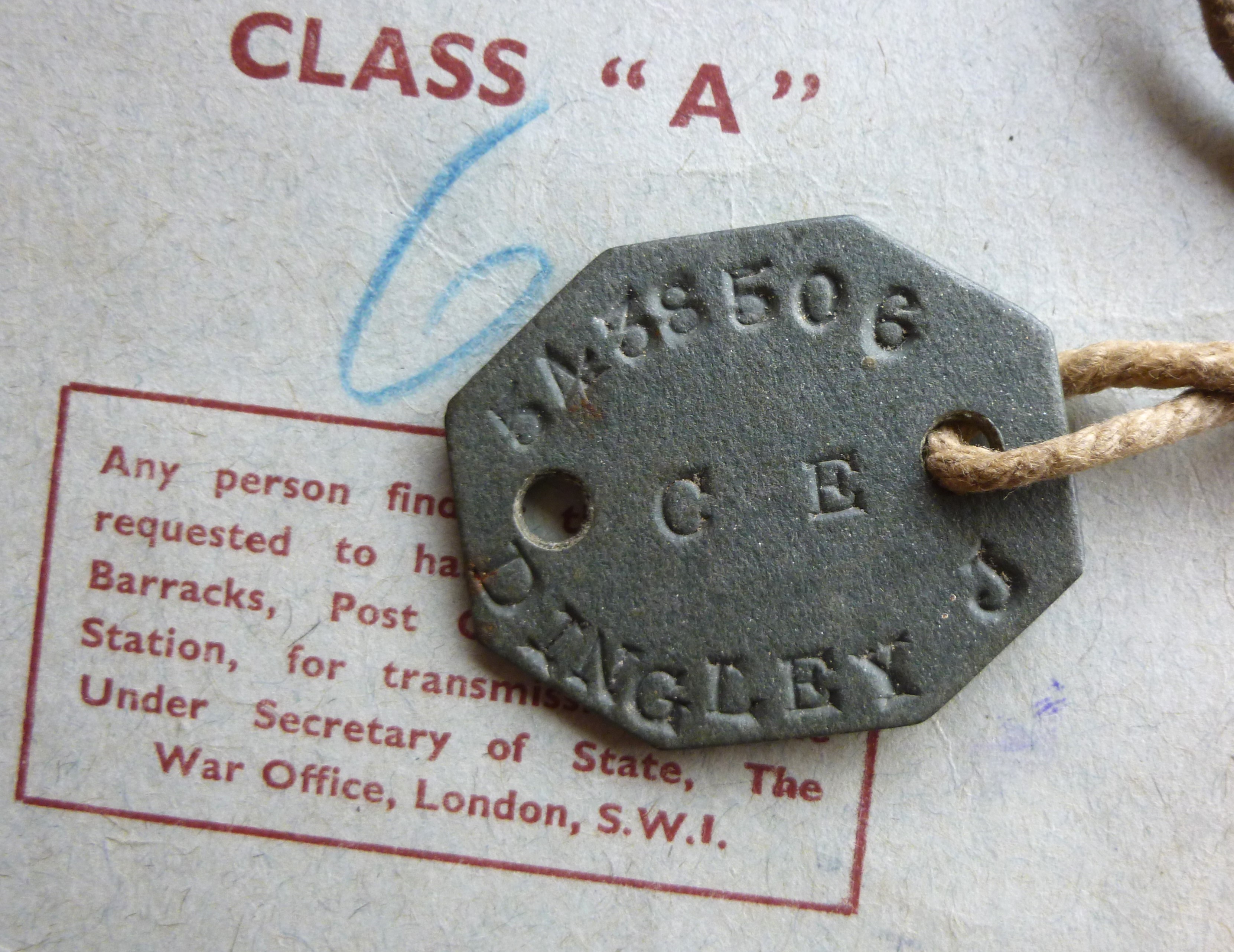The son of Major John and Ethel Dingley of Eagle House, Launceston. John Sn was also in banking. In 1922 John was a branch manager for The National & Provincial in Calstock and by 1930 he was the manager in Launceston. Historically the Dingley family of Cornwall owned their own bank so John was following in the family tradition. A reluctant banker he enjoyed rugby, was capped for Bath and played for National and Provincial Bank and helped to form Launceston Rugby Club.
He was married to Margaret Mycroft Boncher 4 July 1931 in Long Ashton, Somerset and the couple had a daughter Anne. His wife Margaret died in 1955 aged only 47. He later married Susan Harris. John died from his home, Dingley Dell, in Crackington Haven and is buried at the church there along side Margaret.
His army records record him as being 5 foot 10 inches tall with dark hair, green eyes and a fresh complexion.
| Unit or location | Role | Posted from | until |
|---|---|---|---|
| Polhilsa House, Cornwall | Intelligence Officer | 15 Jun 1941 | 11 Oct 1944 |
| Cornwall | Intelligence Officer | 15 Jun 1941 | 11 Oct 1944 |
| Cornwall Scout Section | Scout Section Commander | 15 Nov 1940 | 14 Jun 1941 |
Leys School, Cambridge
Bank manager
18 Aug 1939 Joined Duke of Cornwall’s Light Infantry, Territorial Army as 5438506.
2 Sep 1939 Embodied at Launceston (i.e. called up for duty).
10 Nov 1939 Posted 168th Officer Cadet Training Unit, Aldershot.
8 Mar 1940 Discharged Officer Cadet Training Unit on being appointed to an Emergency Commission.
23 Mar 1940 Posted Infantry Training Centre Bodmin, Duke of Cornwall’s Light Infantry.
7 Apr 1940 Disembarked to join British Expeditionary Force, Europe.
9 Apr 1940 Posted 9th Battalion Duke of Cornwall’s Light Infantry.
2 June 1940 Rescued from Dunkirk and returned to Dover on HMS Worcester.
10 Jun 1940 Struck off British Expeditionary Force.
11 Jul 1940 Posted Infantry Training Centre Bodmin, Duke of Cornwall’s Light Infantry.
15 Nov 1940 Posted to Auxiliary Units as Scout Section Officer Cornwall.
15 June 1941 Appointed Intelligence Officer Captain Auxiliary Units, Cornwall.
11 Feb 1942 Transferred to Intelligence Corps.
24 Apr 1942 Notification of transfer cancelled.
5 Nov 1942 Appointed as a local Magistrate.
11 Oct 1944 Relinquished appointment of Intelligence Officer Auxiliary Units. Posted to 2/5 Battalion Welch Regiment. Posted to High Wycombe helping to re-settle British troops who had been prisoners of war.
24 Sep 1945 Released from Service.
1954 Retired from banking.
Head office at the Bank were not pleased when he joined the Army. As being over age and in a reserved occupation it is said he could not stand by and see so many men go off to fight. A story says he put the keys of the Bank on the counter with a note saying "Tell the bastards in London, I'm off".
He was rescued from Dunkirk on HMS Worcester, she was badly bombed and the steering gear damaged, she heavily collided with the Maid of Orleans when entering Dover. He returned on 2nd June 1940. The stress of that event affected him for the rest of his life. He was one of the last of his group to be rescued as he told his men he would wait as he didn't want to get his feet wet! In reality he wanted to ensure his younger charges were rescued first before he left. John was awarded the 1939-45 Star. His service record describes has character as very good.
His daughter Anne recalled writing to her father from boarding school and addressing them to C/o GPO Highworth. He never talked about his time in Auxiliary Units before and was somewhat annoyed when the information became public after the publishing of The Last Ditch by David Lampe.
Anne remembered her father was given a silver ash tray and cigarette case by the Cornish Patrols after stand down. John gave his daughter Anne a compass, an army knife and a large magnet after stand down. When he became older, Anne collected up all the remaining ammunition and handed it to the Police. She recalled a time, returning from Plymouth, they stopped at the Tamar Bridge car park to admire the view. John told her that he had training the local Patrol to set explosives inside Brunel's Tamar Bridge. A man of action, he was fully prepared to join the Auxiliers had invasion occurred and he was occasionally a little dismissive of what he saw as "pen pushing" Intelligence Officers.
Anne also remembered the soldiers being at Polhilsa House. Corporal Durston built her a rabbit hutch out of army procured timber and a Sergeant Robertson, a poulterer from Scotland, despatched a duck when it was needed for the table so her mother did not have to do it. The soldiers built a galvanised iron shed at the bottom of the field, painted dark green it was kept securely locked.
Service Record
The Dingley family especially his late daughter Anne Barks



















